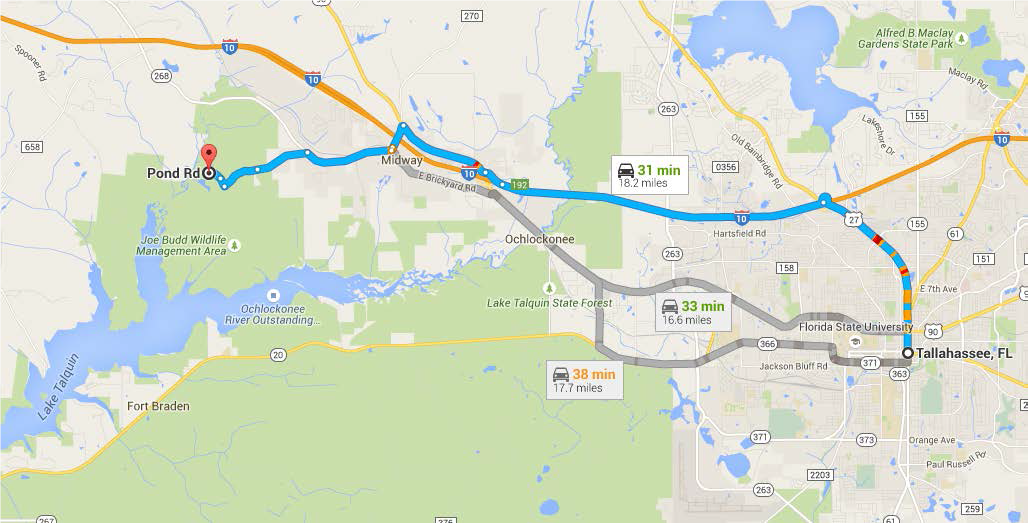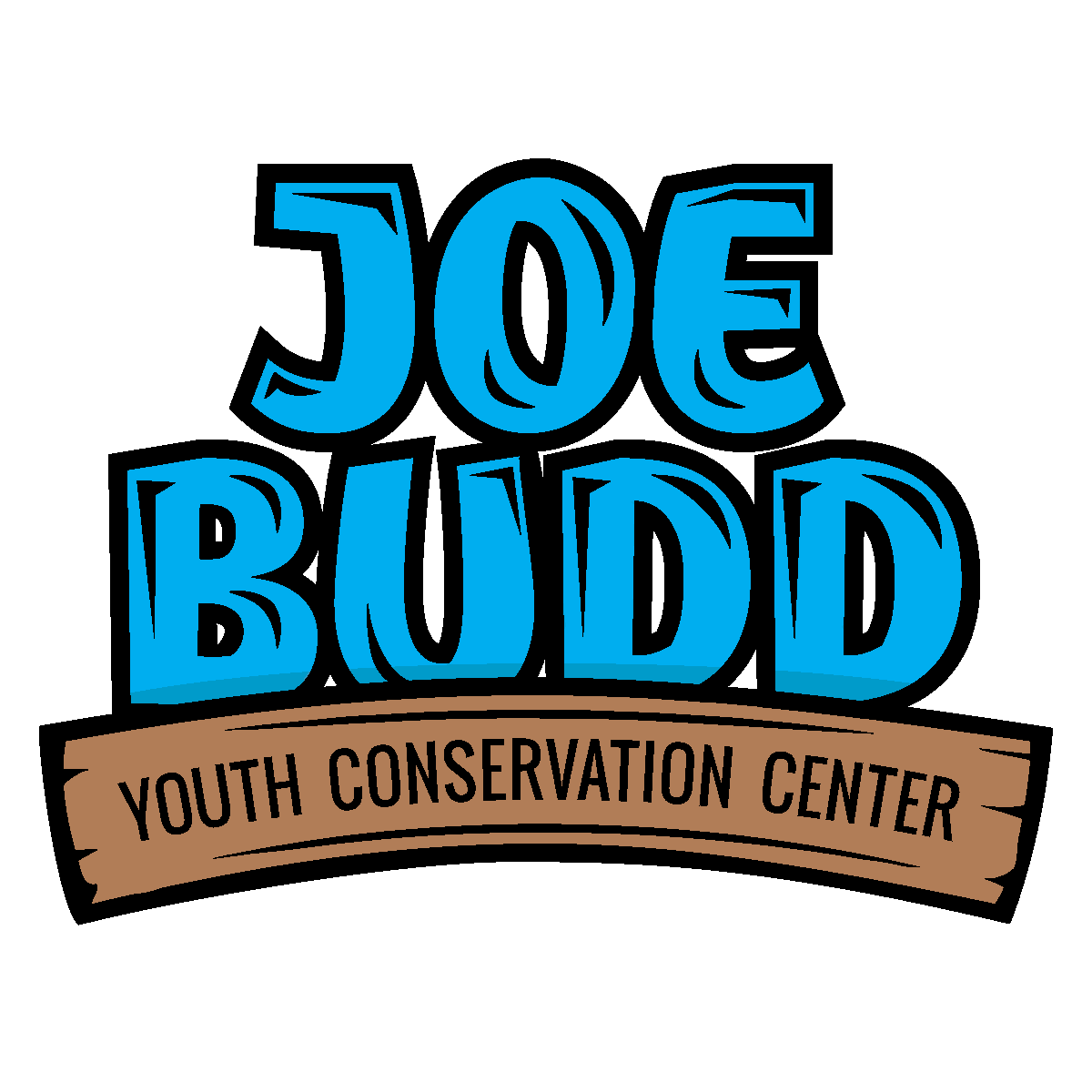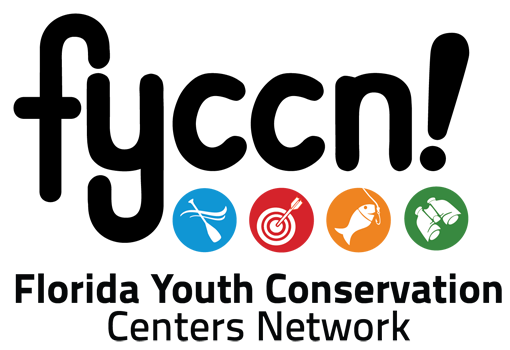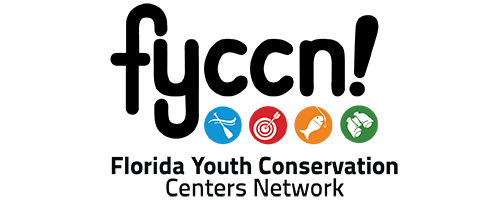Field Trips
Our school field trips are free for students in grades 2nd through 12th grade. Minimum class size is 10 students and the maximum number of students in one day is 50. The Joe Budd Youth Conservation Center, as part of the FYCCN, requires a 1:10 adult to youth ratio for all activities. We provide the instructors, lessons, necessary equipment, and smiles for your memorable time here at JBYCC. Educational programs are led by facility staff and are correlated to state education standards. This hands-on experience with aquatic habitats is sure to raise their awareness and appreciation of responsible natural resource management. Please contact us with questions and to book your field trip experience. Hurry, spaces fill up fast!
School Program Tracks
JBYCC’s school programs consist of two parts: one conservation education activity (selected from the list below), followed by a hands-on fishing experience at the pond.
Part 1: Conservation Education (1 hour) (Select One)
Wetland Scavenger Hunt Grades 2-8
Students search for native wildlife along the wetland nature trail and learn about each animal’s role in the habitat.
Microscopic Pond Life Grades 3-12
Students use nets to collect aquatic organisms from the marsh area of Joe Budd Pond. Microscopes and stereoscopes are used to examine and identify plant and animal species.
Fish Dissection Grades 5-12
Students use scientific equipment to dissect various fish species, examining gill structures and analyzing stomach contents.
Part 2: Fishing Experience (1 hour)
All students who participate in school programs get the opportunity to fish from the banks and boardwalks of Joe Budd Pond. They will learn to bait a hook using a live worm, cast a line and reel in their catch, as well as ethical catch and release practices.

How to Schedule a Field Trip
Spaces fill fast! Reserve a day for your class by contacting Camp Director, Meghann Dawkins at meghann.dawkins@myfwc.com or by calling Joe Budd Youth Conservation Center at (850) 933-4322.
Build a Trip to Joe Budd Youth Center
A program at Joe Budd consists of two parts: one conservation education activity and the second is skill building experience.
The maximum number of participants (students) is 50. Groups will be divided and rotated on a time schedule for each part of the program.
Groups larger than 20 students
ACTIVTY 1-Conservation Education (1 hour)
Wetland Scavenger Hunt
Students search for native wildlife along the wetland nature trail and learn about each animal’s role in the habitat.
Macroscopic Pond Life
Students use nets to collect aquatic organisms from the marsh area of Joe Budd Pond. Stereoscopes are used to examine and identify plant and animal species.
Leave No Trace
This interactive program has students learning about the ways in which we can Leave No Trace in our daily lives. We will investigate vermicomposting to see what are worms favorite foods.
Insects and Life Cycles
What is an insect? Why are there so many and why are they so important? Those questions and more will be answered while students explore the outdoors to find and observe an insect, identify it, determine if it is an adult or offspring, and then compare the adult and offspring of the species.
EnviroScape
Hands-on, interactive demonstration of the sources and effects of water pollution. Easily demonstrate how storm water runoff carries pollutants through the watershed to a pond, lake, river, bay, or ocean – and the best management practices to prevent this type of pollution from occurring.
ACTIVITY 2-Skill Building Experience (1 hour)
Backyard Bass and Fishing (catch and release)
Students who participate in a field trip program can fish from the bank of Joe Budd Pond. They will learn to bait a hook, cast a line and reel in their catch, as well as ethical catch and release practices.
Shelter Building
Students will visit our Magnolia Grove to learn how to build a shelter using only what the forest provides. Teachers using the novel “Hatchet” will appreciate this program and its’ hands on experience for their students.
Orienteering
What happens when all our technology is not working, and you want to find your way? Students will learn the basics of a compass and learn to navigate on our pre-designed orienteering course through the forest.
Birds of Florida
Students learn to use binoculars to identify common birds found in their backyards. Hands on activities teach students how bird beaks are adapted for specific foods, students compete and compare in a “Bird Olympics” by physical attributes of birds to humans.
Groups smaller than 20 students
ACTIVTY 1-Conservation Education (1 hour)
Water Quality
Students will take water samples at several pre-determined sites at Joe Budd to learn to perform experiments on water quality, record the data and apply the findings to determine if their water sample will support aquatic life.
Fish Dissection
Students use scientific equipment to dissect various fish species, examining internal and external anatomy and analyzing stomach contents.
Palms to Pines
This program guides students through the understanding of the complex world of trees and their connection to our lives. For younger students: basic understanding of tree parts, tree leaf identification and products made from trees that we use every day through fun, interactive activities. For older students: investigate the economic, environmental, and social aspects of forests. Using forester’s tools, students will survey the health of the schoolyard trees and begin to understand how natural and human influences affect forests.
ACTIVITY 2-Skill Based Experience (1 hour)
Intro to Archery
The archers learn the basics on parts of a compound bow, types of bows, types of arrows, and how to draw, aim, and release safely. They practice shooting from a standing position at targets at various distances.
Intro to Kayaking (September to November and March to May)
Kayaking focuses on boating nomenclature, introductory paddling techniques, and safety rules and considerations while out on the water. Participants use a single-seat kayak to travel along Joe Budd Pond.
Intro to Paddleboarding (September to October and April to May)
Paddleboarding focuses on boating nomenclature, introductory paddling techniques, and safety rules and considerations while out on the water. Participants use a paddleboard to travel along Joe Budd Pond.
Rainy Day Activities
Don’t worry, we got it covered! Bring your students and we will still provide a fun learning experience at Joe Budd. Choose from these timeless activities.
Pelts, Skulls, Tracks & Scat (30-40 minutes)
Students learn about Florida wildlife by identifying pelts, animal tracks, scat, and skulls. This program connects STEAM requirements and focuses on food chains and life cycles of animals.
Reptiles (30-40 minutes)
Our resident reptiles are available to come and educate students about ecology, adaptations, and their vital role in the environment. These educational specimens are a great way to talk about the life cycle and conservation of reptiles.
Florida Black Bear (30-40 minutes)
Students will learn some bear facts and identify and describe the factors of bear habitats. Find out how limiting factors affect animal populations and analyze data to determine how many bears can live in a habitat.
Bats of Florida (30-40 minutes)
Learn about Florida’s 13 bat species; what do they eat, where they roost, and why we should conserve them. By putting students in the shoes of a bat biologist, they will collect a bat that is “caught in a net” and gather information about the bat to determine the overall health of the bat.
Rocks, Minerals and Fossils (40-50 minutes)
What is a rock, mineral, or fossil? Joe Budd staff will bring hands on activities to discover our state mineral, how to identify fossils, and what minerals are found in our everyday life.

Joe Budd Youth Conservation Center
639 Pond Rd. | Midway, FL 32343
850-933-4322 | jbycc@myfwc.com
See Map


